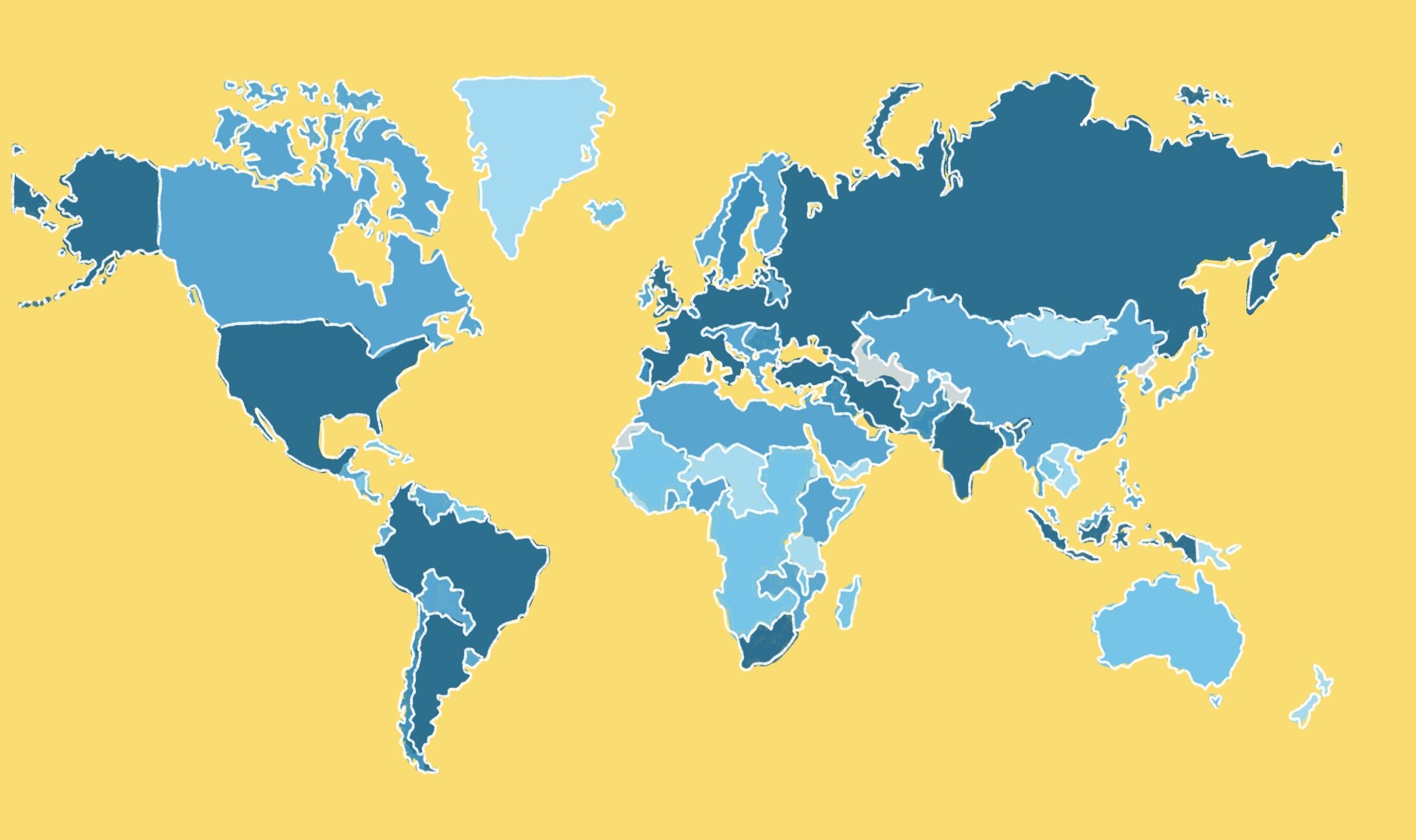Graphic by Trinity Kendrick ‘21
By Amelia Luo ’23
Global Editor & Photographer
According to a Feb. 15 report from the World Health Organization, the number of reported cases of COVID-19 globally has been declining overall for the fifth consecutive week, making last week the lowest number of reported cases since October 2020.
Tanzania, one of the few countries that did not publish its data on COVID-19, has been urged by the WHO to start reporting. Tanzania’s last report was released in May 2020, recording 500 cases and 20 deaths nationwide. In June, Tanzania President John Magufuli declared that Tanzania was “coronavirus-free.” No reports have been released since. On Feb. 21, following the WHO’s urging, Magufuli advised citizens to wear locally produced masks and take precautions against the virus while expressing concern over foreign-produced goods such as masks and vaccines.
In India, Prime Minister Narendra Modi has launched a program aiming to get more than 1.3 billion people vaccinated, stating that priority would be given to 10 million health care workers, police forces, soldiers and municipal and other essential workers. People who received both doses of the vaccine will be given a certificate.
On Feb. 20, thousands of people attended the anti-vaccination protest in Australian cities, such as Sydney, Melbourne, Adelaide and Perth. Those present were misled by rumors that those vaccinations are mandatory. Despite this confusion, Australia started its vaccination rollout on Feb. 21.
The COVID-19 variant is leading a new wave of infection. As of Feb. 19, 2021, the U.K. variant has been found in 94 countries; the South African variant has been found in 46 countries; and the Brazilian variant has been found in 21 countries.
According to U.N. Secretary-General António Guterres, the global distribution of vaccines is “wildly uneven and unfair.” There is a considerable gap between the top 10 countries and the others. While these countries are vaccinating against the COVID-19 virus, they also make up about 75 percent of all the vaccines distributed worldwide. Supporting the global COVID-19 vaccine initiatives, G-7 countries met virtually on Feb. 19. They pledged $7.5 billion to the Covax scheme, which aims to get at least 1.3 billion vaccine doses to vulnerable populations worldwide.

